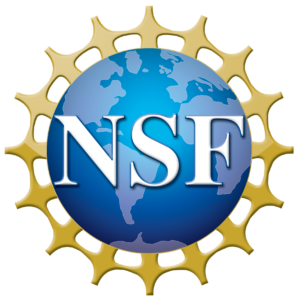There is no doubt that one of the most prestigious awards a junior faculty member can receive is the NSF CAREER. If received, the grant’s five years of funding serves as a foundation for a young professor’s research program. As one might imagine, because it is so prestigious and relatively long-lasting, getting it is very competitive. The funding rate is approximately 14% to 24% depending on the directorate.
If you think you might be interested in applying, you first need to be sure that you are eligible.
You must:
- Hold a doctoral degree in a field supported by NSF: BIO, CISE, HER, ENG, GEO, MPS, SBE
- Be a tenure-track assistant professor.
- Submit no more than one CAREER proposal per year.
- Apply no more than three times.
- Have not previously received a CAREER award (other types of federal support are fine).
- Be able to do the research without Co-PIs (you may have collaborators).
- Be engaged in research in a field of science, engineering or education supported by NSF.
- In addition, you must have the strong support of your dean/department chair.
If you passed the eligibility test, you need to ask yourself the following questions:
- Is it too early for me to apply?
- If you have recently arrived at ASU, you may not yet know enough about your place in research and education at ASU to write a competitive proposal.
- You have a solid foundation for this work, e.g. preliminary data.
- Is it too late for me to apply?
- Although you can apply in the year that you will submit your tenure packet, we recommend having at least one additional year so that if you are not funded on the first try you may use the reviewer comments from your first submission to create a more competitive package the next year. Two additional years – three chances to submit – is best.
- Is my research creative, original, or potentially transformative?
- Any NSF proposal needs to have solid research, but the CAREER must WOW the panel.
- Your project must have a strong chance of success.
- For best success, link your project to NSFs 10 Big Ideas.
- Do I have a knock-out education plan?
- Perhaps the largest thing that separates a CAREER from a regular NSF core proposal is the education plan.
- The education plan must be effectively integrated with the research plan.
- The education plan must go beyond what is expected for all assistant professors.
- Have clear, measurable objectives and include assessments.
- Have you discussed your idea with your NSF program officer?
- S/he will help you decide if now is the right time.
- S/he will help you decide if your idea is CAREER-worthy and may help you hone it if it is not.
Applying for an NSF CAREER is a big job but being awarded one indicates that there is real excitement about you and your work. If you are interested in applying for an NSF CAREER in 2020, please contact the GFL Research Development Office for more information and to set up an appointment.
